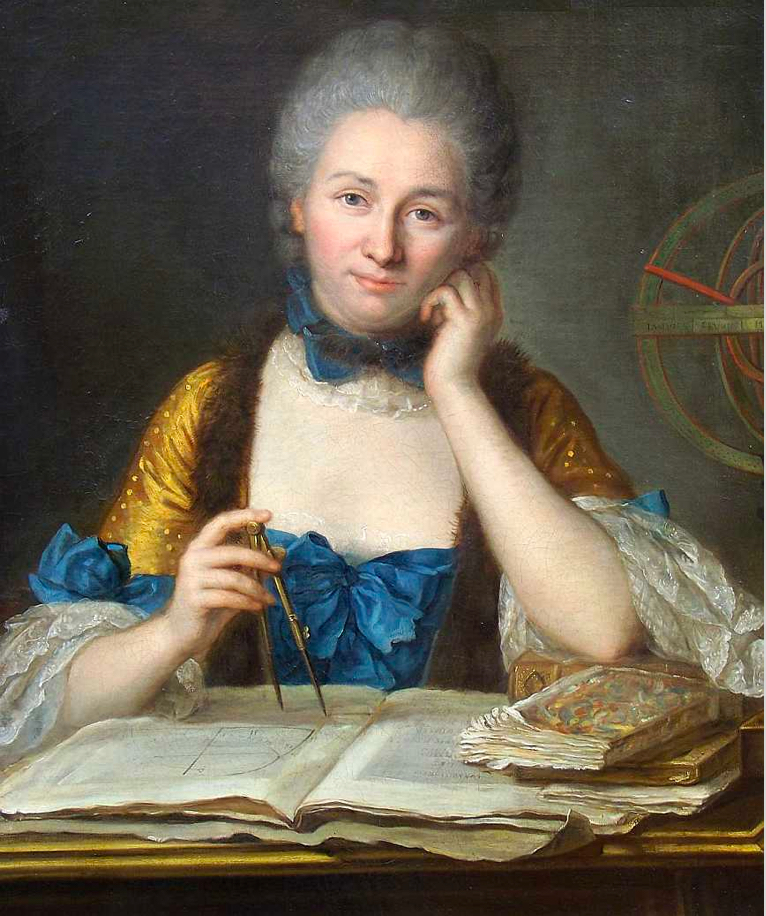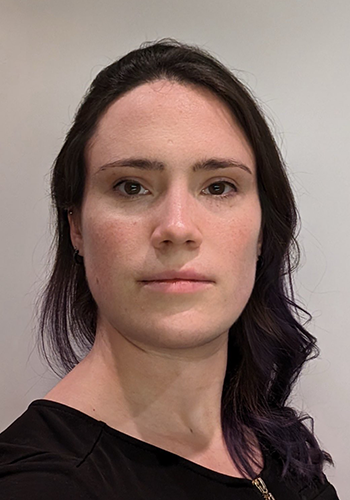
Why a career in tech?
I’ve always been fascinated by mathematics—my dad would have me do prime factorization so that I wouldn’t be too bored (and let him appreciate art in peace) in museums as a kid. By studying math, I was eventually exposed to computer science, and it was love at first sight. I discovered that algorithms can be beautiful in the same way that some mathematical proofs are. And so, at the intersection of mathematics and computer science, I started working in AI.
In addition to being my ideal blend of math and computer science, I believe that AI can be a tremendous power for good, regardless of its current (over)hype. AlphaFold (Chemistry Nobel prize in 2024) is one such example. By working in tech, and biotech specifically, I have the opportunity to work on algorithms and AI models that may—I hope—help accelerate the research for novel cancer treatments, for cures to rare diseases. One day, who knows? AI may be one of the tools that helps us discover new laws of biology.
Your professional experience?
My professional career is pretty common among AI researchers: I studied math and physics in high school, then went to a French undergrad (“Ecole polytechnique”) to study math and CS. During my undergrad, I became wholly fascinated by AI, and elected to skip out on my immediate career opportunities to instead begin a PhD at MIT.
After defending my thesis, I joined Google Research in 2019, where my research focused on uncertainty estimation, specifically in the context of predicting when we can rely on AI for decision making. As part of this research, I looked at AI and decision making for drug discovery, and spent a couple years working on CoVID treatment design. Working at the intersection of AI and biology made it very apparent to me that we need bespoke AI models, trained and designed explicitly to work with medical data.
This is why, in 2023, I decided to leave Google DeepMind to co-found Bioptimus, the start-up where I currently work, with the goal of building AIs for biology.
Your first professional experience with technology?
My very first professional experience was as an intern at Bouygues Telecom, a French ISP, where I developed algorithms to detect the coverage areas with a higher risk of network failure (“Single Points of Failure”).
What do you do today, and why?
I’m the Vice President (VP) of Research at Bioptimus, a ~20 people startup which I co-founded.
Bioptimus’ mission is to build “Foundation Models”—massive AI models trained for months on incredibly large datasets, such as ChatGPT—for biology. Rather than having an AI learn French or English, or having it learn to distinguish between cats and dogs, Bioptimus trains AIs to work on cancer biopsies, sequences of amino acids, gene expression in cells… These AI models are meant to be a tool in the hands of the biologists, chemists, and medical researchers that develop novel disease treatments or find ways to detect cancer in its early stages.
Your strengths in this role?
1/ First and foremost, my scientific training. It comes into play every day:
– To identify which techniques and data to use to build a model; which experiments to run; which related developments in our field need to be incorporated into our modeling strategy.
– To communicate with experts and non-experts about our work, our results, and our goals.
2/ My experience with mentorship. I’ve had the opportunity to mentor people across a broad range of life experiences (high-schoolers, first generation college students, MIT grads…). I like to think that this mentorship has taught me how to lead productive discussions with a team of scientists from very different backgrounds: oncologists, computational biologists, statisticians,…
3/ I really enjoy fiddling / tinkering with problems! This turns out to be really useful when working with medical data: getting my hands dirty is the only way to understand what artifacts (batch effects, etc.) are corrupting the biological signal. Detecting these artifacts is the first step in mitigating them, and is crucial to develop algorithms that can isolate biological signals from the noise.
Past challenges, failures and disappointments?
My first time applying AI to medical data did not exactly go as planned. The models I was familiar with, that worked so well on “clean” data (either synthetic data, or data that had already undergone huge amounts of preprocessing specific to AI solutions), were completely incapable of providing meaningful predictions on the messier and unprocessed wet-lab measurements I was using. Medical data is always altered by the measuring process: the machines used in different hospitals aren’t calibrated identically; the temperature of a lab will influence the outcomes of a cell culture; measuring instruments are imprecise.
Seeing for myself how the academic models I had studied for so long were stumped by medical data was a major turning point in my career. But despite my initial disappointment, this moment is also what pushed me to pivot my research towards AI for biology.
Best moments, successes you’re proud of?
One of the most satisfying moments in my career came from analyzing mathematical identities that were, for lack of a better term, ugly. A colleague and I sat down and tried to imagine what it would take for these results to be mathematically beautiful—which led us to discover a couple of extremely elegant theorems, which in turn simplified a huge chunk of existing theory related to AI ensembles.
People who helped, influenced -or made your life difficult?
In tenth grade, my math teacher took me aside during recess to show me a proof he thought I would find beautiful. This moment is what made me decide to pursue mathematics as a career!
On the less positive side of things, I have also encountered vast amounts of misogyny during my undergraduate and graduate years. This is one of the reasons why I’m so passionate about mentoring: I want to help others study and love science despite the obstacles that might be put in their
Your hopes and future challenges?
Creating AIs capable of modeling different scales of biology (from DNA to proteins, to tissue, to organs, to patients) is a major challenge. This challenge is obviously scientific in naturel; but it’s also a human challenge due to the collaboration between different scientific disciplines, and a pragmatic challenge in terms of resources: compute, data, etc.
I’m also extremely impatient to see a world where tech is more inclusive of historically marginalized groups. Not only because this is the kind of world I want to live and work in, but also more prosaically because it’s the best setting for scientific progress and discoveries.
What do you do when you don’t work?
I play (a lot of) video games, I weightlift, and do parkour.
I play (a lot of) video games, I weightlift, and do parkour.
Fictional: Princess Zelda! Especially in Ocarina of Time.
Non fictional: Emmy Noether. Not only for her extraordinary scientific career as a jewish woman during the 20th century, but also for Noether’s theorem, a beautiful law about invariants in physical systems. Louise Michel and Roxane Gay are two other of my heroes.
A saying or proverb you like in particular?
“Actions speak louder than words”
A book to take with you on a desert island?
The Lord of the Rings.
A message to young female professionals?
Don’t hesitate to reach out to people further along in their career for advice or mentorship! I’ve had mentors who helped me professionally (salary negotiation, job applications) and academically (scientific networking, attending conferences, etc.). I’m eager to return the favor to the next generation, and so are many others.

